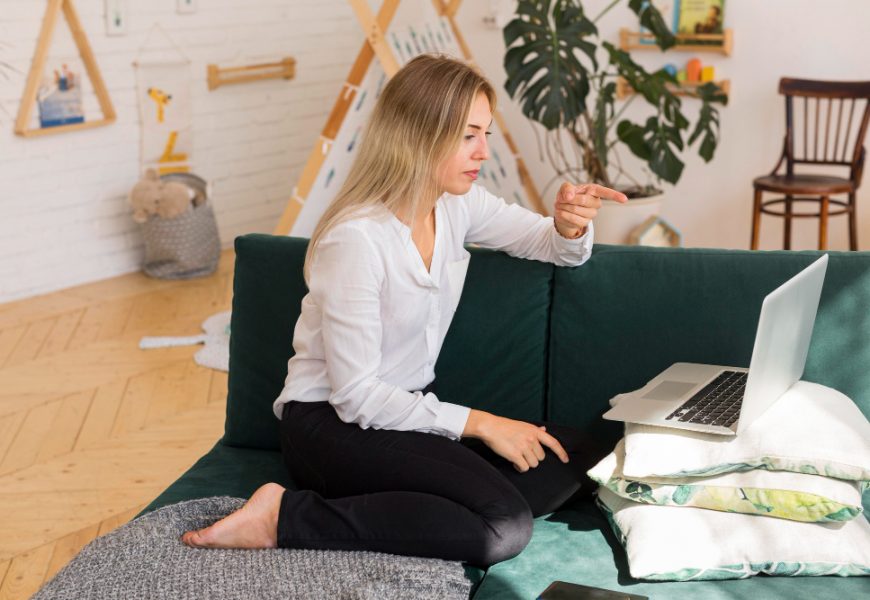Modern life has conditioned many of us to believe that more is the path to fulfillment: more possessions, more activities, more goals. Yet, paradoxically, the accumulation of excess often leads to the opposite of joy. Instead of bringing peace, it weighs heavily on the mind, creating stress so persistent and subtle that most people barely notice it until it becomes overwhelming. Psychologists have long highlighted the link between clutter and heightened cortisol levels, our body’s primary stress hormone. Every time our eyes scan a room overflowing with objects, scattered papers, and unfinished projects, our brain perceives them as tasks waiting to be addressed. Even subconsciously, clutter increases mental workload, making it harder to concentrate and easier to feel fatigued.
Beyond the physical mess, there’s also the emotional toll of ownership. Each item we acquire requires maintenance, storage, and decision‑making — whether or not to use it, how to keep it safe, when to replace it. Over time, these micro‑responsibilities accumulate into a mental burden, draining focus and eroding calm. The effect is a continual background pressure, the sense of being surrounded by unfinished business.
Minimalism offers a striking antidote to this invisible weight. By intentionally reducing excess possessions, individuals shift the focus away from material accumulation and redirect their energy toward purpose and fulfillment. This does not mean deprivation or stark emptiness; rather, it represents a conscious alignment with what truly matters. When distractions are stripped away, clarity surfaces. Living with fewer, carefully chosen belongings, people report not only cleaner homes but also a calmer inner state, steadier emotions, and more restorative rest. In short, minimalism helps eliminate the constant low‑grade hum of stress that clutter amplifies, making space for balance and mental well‑being.
Adopting minimalism in daily life doesn’t require radical change. Small, consistent shifts—when approached thoughtfully—can transform both mental health and overall quality of life. The impact is deeply physiological as well as psychological, influencing stress levels, sleep patterns, and resilience in the face of everyday pressures.
Decluttering Physical Spaces
Rooms filled with unnecessary objects create visual chaos. Taking the time to let go of things that are unused or no longer serve a purpose allows the environment itself to become calmer. A minimalist home reduces the constant signals the brain must process, which in turn lowers overstimulation and permits relaxation. Even clearing a single closet or organizing a small workspace can bring a noticeable reduction in anxiety, because the space begins to support, rather than fight against, mental focus.
Streamlining Daily Decisions
Decision fatigue is a genuine contributor to stress. From choosing what to wear each morning to handling countless small choices during the day, the brain tires quickly when overloaded. A minimalist approach—such as a simplified wardrobe, routine meal plans, or clearly structured schedules—reduces trivial decisions, preserving mental energy for what truly matters. As a result, individuals report greater productivity and less evening exhaustion.
Reducing Digital Noise
In today’s digital era, mental clutter is just as invasive as physical clutter. Endless notifications, constant scrolling, and overstimulation from screens erode attention and spike stress hormones. Minimalism applied to technology—by turning off non‑essential alerts, curating social media feeds, or scheduling screen‑free hours—restores a sense of control and presence. Instead of reacting to the digital world, individuals create space to digest experiences, connect meaningfully, and recharge emotionally.
Prioritizing Meaningful Commitments
Minimalism is not about doing less for the sake of less, but about choosing intentionally. Many people experience stress from overcrowded calendars and the inability to say no. By prioritizing only the most meaningful commitments, individuals free up time for rest, relationships, and pursuits that bring genuine satisfaction. This shift nurtures emotional health while fostering resilience, because life becomes driven by authentic values rather than the fear of missing out.
Tangible Benefits for Well‑Being
The result of these minimalist practices is more than anecdotal. Studies show that reducing clutter and simplifying routines help lower cortisol levels. A calmer space often translates to deeper, more restorative sleep. With fewer mental pressures, people become less reactive to daily stressors and more resilient long‑term. Minimalism doesn’t impose strictness or sacrifice; instead, it creates a lifestyle that is both sustainable and freeing, where peace and productivity are natural byproducts of intentional living.
Final Thoughts
Minimalism is not about empty rooms or rigid self‑discipline. It is a way of rebalancing life in a culture that often pushes constant accumulation and overstimulation. By letting go of excess—whether in objects, commitments, or digital distractions—we create the mental, emotional, and physical space needed for calm and clarity. Stress is not eliminated overnight, but it is markedly reduced because life aligns more closely with what we value most.
Ultimately, minimalism does not subtract from life; it adds the essential: rest, focus, balance, and fulfillment. In a world where stress often feels unavoidable, embracing minimalism reveals that we have more control than we realize—control not just over our environment, but over the peace of mind we cultivate within it.



